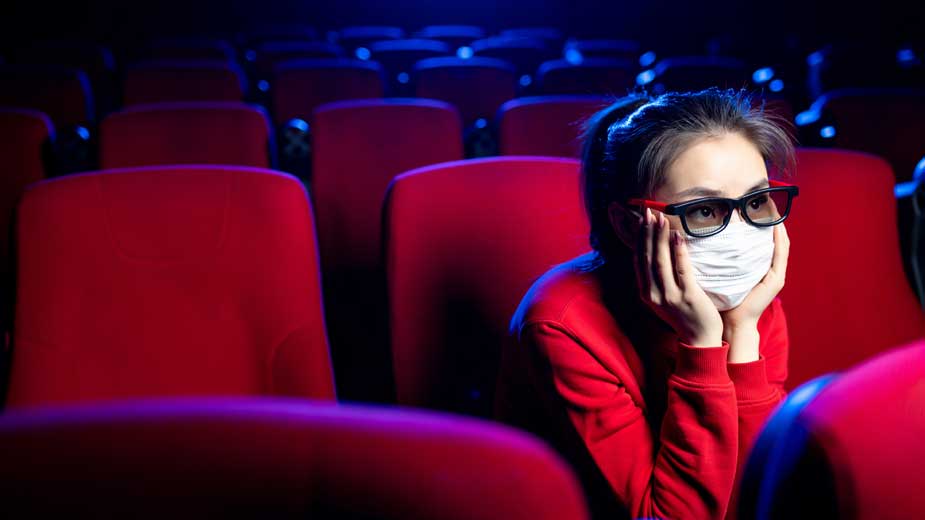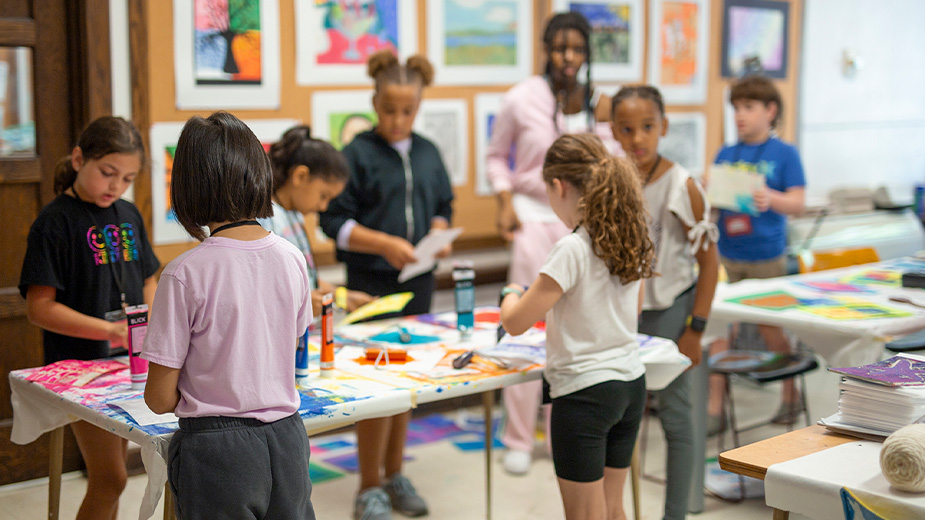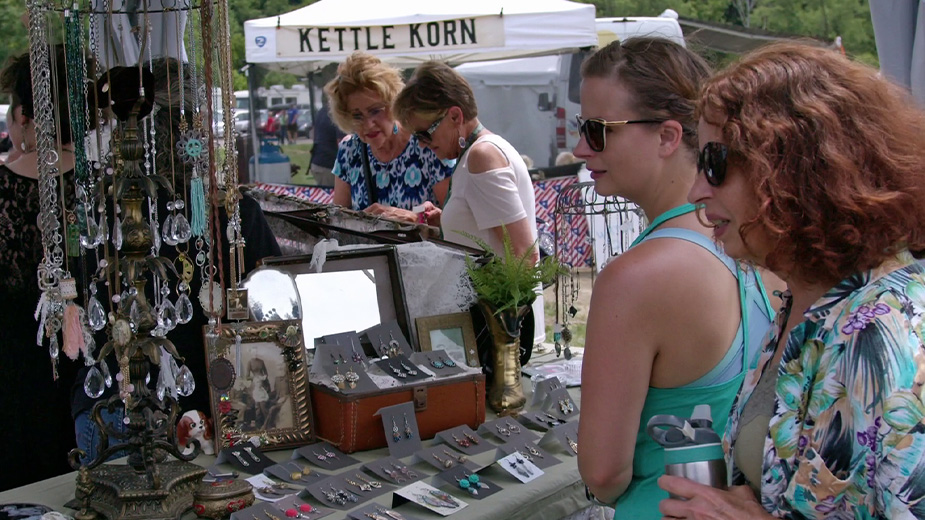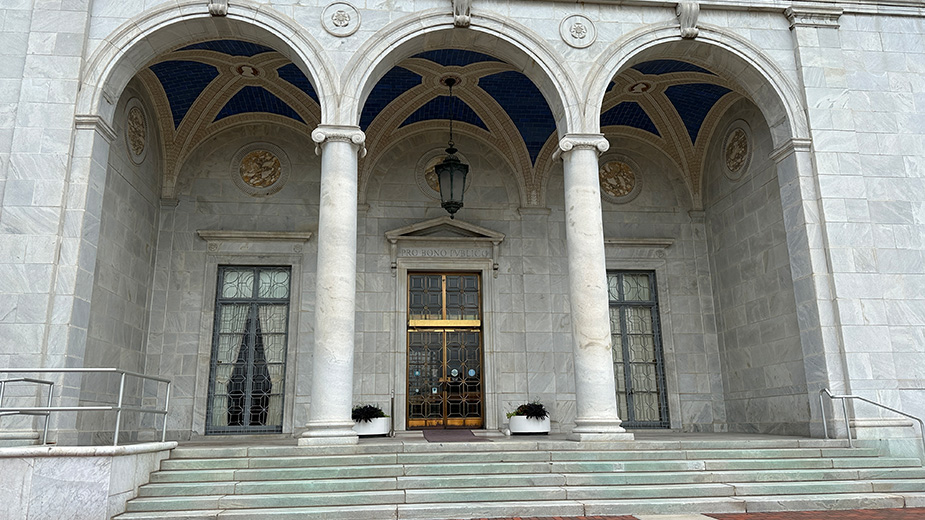‘First to Close, Last to Reopen’: COVID’s Death Grip on Entertainment Field
YOUNGSTOWN, Ohio – It was the year that gave us the “virtual festival.”
The year 2020 will go down as the worst year ever for just about everyone, thanks to the pandemic. But for those in the restaurant and live entertainment fields, it was devastating.
Nearly 90% of Ohio restaurants are operating at less than 75% capacity, according to the Ohio Restaurant Associaton. Most are keeping their nose above water with takeout sales. Some won’t survive.
For entertainment venue operators, there was no saving grace, no segment of business that continued. If you make your money from gathering people together in a room, you were out of luck.
As Nate Offerdahl, owner of hard-hit rock’n’roll venue West Side Bowl, put it, “Congregating is our business model.”
Offerdahl’s business has been reduced to take-out pizza and – of late – some dining in.
“In the live event industry… 2020 is over,” Offerdahl presciently said in May.
A lament of venue operators nationwide that has been elevated to a catch phrase is, “We were the first to be closed and we’ll be the last to reopen.”
Congress passed a $900 billion coronavirus relief bill in December that included $15 billion for the operators of smaller vanues. Locally, that includes West Side Bowl, and also JAC Management (which runs Covelli Centre, the Youngstown Foundation Amphitheatre, and Packard Music Hall), Stambaugh Auditorium, The DeYor Performing Arts Center and The Robins Theatre.
Local community theaters reacted to the shutdown by a combination of furloughs, cost cutting and the occasional virtual performance.
The virtual shows were generally of strong quality. More importantly, the kept each theater’s name alive and raised some much-needed revenue.
Still, community theaters responded to the shutdown mainly by laying off staff and cutting every expense to the bone.
Summer is festival time in the Mahoning Valley, and the events are an integral part of the fabric of life here. They are a reason to get together, and being in the crowd is the biggest part of the fun.
Each festival and public gathering was canceled, including the Canfield Fair. And while “virtual festival’ might seem like a contradiction in terms, at least one of the local events went that route.
John Slanina, president of the Simply Slavic festival board, called his group’s virtual affair a way to “stay physically distant, but collectively come together to celebrate our shared heritage.”
But the whole year was not just COVID-related shuttered venues and streaming shows. There were other stories.
The year started with the Jan. 9 grand reopening of the beautifully renovated Robins Theater in downtown Warren. The building was an instant but short-lived hit; it had to shut down in March, along with everything else.
The Medici Museum of Art completed its breakaway from The Butler Institute of American Art, hung a priceless collection of paintings by the late Norman Rockwell on its gallery walls, and opened in May.
June saw the reopening of the movie theater in Austintown Plaza. Beautifully refurbished and with all the latest bells and whistles, the former Regal multiplex is owned by the New Castle, Pa.-based Golden Star Theaters chain.
Tragedy struck in August with the death of Randall Craig Fleischer, the respected conductor and music director of the Youngstown Symphony Orchestra. Fleischer died suddenly in his Los Angeles home. He was 61.
An outpouring of emotion followed Fleischer’s death, but Don Yallech a percussionist who frequently plays in the YSO, might have put it best.
“Randy brought something to the table that Youngstown never had,” said Yallech. “He was world class.”
A search for Fleischer’s replacement has been on hold until the virus restrictions on performances are lifted, as any tryouts will have to conduct the YSO in a performance.
After nine months of construction, the Phelps Street pedestrian walkway opened Oct. 30.
In any other year, that would have been huge news. But the block-long mall lined with eateries and bars will surely become a center for nightlife and festivals once the pandemic ends.
As Mayor Tito Brown said at the opening ceremony, “Right now is a great time to celebrate, to show… what we’ve got to look forward to.”
The local theater community was saddened to learn of the Nov. 27 death of David Jendre. An actor, dancer, choreographer and director who graced Broadway stages, Jendre was a pillar of Youngstown theater and his productions were always top-notch.
In November and December, Julia Cooper of Columbiana, formerly of Poland, spent time on the national stage as a contestant on the NBC singing competition show “The Voice.”
Cooper had an impressive run, and although she didn’t finish on top, she’ll be heard from in early when she releases some new music.
“If I was more cookie cutter, maybe I would have gone further,” she said of her run on the show. “But I showed people what they’re going to get from me.”
December also brought the first “Miracle on Easy Street” television special. The warm holiday revue, which gave a peek behind the curtain, helped Easy Street Productions to stay afloat during the pandemic.
The year came to a close with a bombshell announcement on Dec. 15 that the Youngstown Symphony Society entered into an agreement with Stambaugh Auditorium to manage the DeYor Performing Arts Center.
The goal is to not only save on operations costs but to increase revenue by increasing usage of Powers Auditorium and the Ford Family Recital Hall.
As 2021 begins, the big question is, When will the live entertainment field get back to normal?
Experience tells us that this virus moves at its own pace, so predicting the reopening of venues is a crapshoot at best.
Still, the prevailing wisdom – backed up by Dr. Anthony Fauci, director of the National Institute of Allergy and Infectious Diseases – is that public gatherings will return in the final three or four months of the year.
Copyright 2024 The Business Journal, Youngstown, Ohio.



